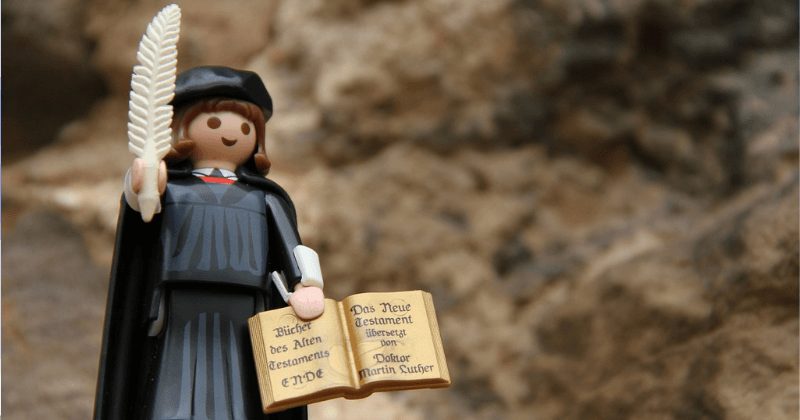By Kaley Payne
The tendency for Protestants to distance themselves from the great evils of Church history with the cry ‘but that was the Catholics’ is unconvincing from a historical standpoint, argues John Dickson.
“I suppose when your tradition popped up in the 16th century, it is tempting to disown all the bad stuff between Jesus and Martin Luther. But that does not work for me,” writes Dickson in the prelude to his book Bullies and Saints: An honest look at the good and evil of Christian history.
“…it is tempting to disown all the bad stuff between Jesus and Martin Luther. But that does not work for me.”
Explaining why he doesn’t make any great historical distinction between the Roman Catholic church and the Protestant church (or the Orthodox church), Dickson goes on to write:
“Not only have Protestants in their brief 500-year history participated in all the same bigotry, hatred and violence of their Catholic counterparts, this convenient line of reasoning leaves Protestantism in the strange position of having to admit that it has made almost no contribution to the historical fabric of western civilization, since all the hospitals, charities, educational institutions, and distinctively Christian ethics of Protestantism are largely a continuation of traditions which thrived in Catholicism (and Orthodoxy) for the 1500 years before.”
Of course there are significant theological differences between the two traditions, says Dickson, but viewed historically the Roman Catholic Church and the Protestant church are essentially the same social institution.
For evangelical Christians, the important thing about Christianity is not its broad social contribution but the theological contribution Protestants made in clarifying the message of salvation through faith alone. However, those outside the Church will find it much more difficult to look past the social contribution of the Church, as that is what is often the first (and most public) entry point to discovering the more theological nuances of the faith.
If you’re a Protestant attempting to defend the Church against the notorious Crusades or the Inquisitions, the cry ‘but that was the Catholics’ just isn’t going to cut it. In fact, Dickson argues, there may not be much of a defence at all. But the story of the Church’s social contribution – both bad and good – is more complicated.
“I admit to feeling a deep sympathy, affinity even, for anyone who thinks Christianity has done more harm than good. There is much to bolster that impression [in my book]. At the same time, I cannot shake the conviction that the evidence demands we acknowledge that even in the darkest moments of Christian history (and today), the flame that Christ himself lit – “love your enemies; do good to those who hate you” – had a habit of exposing the darkness from within and then reigniting itself throughout the Church.”










































